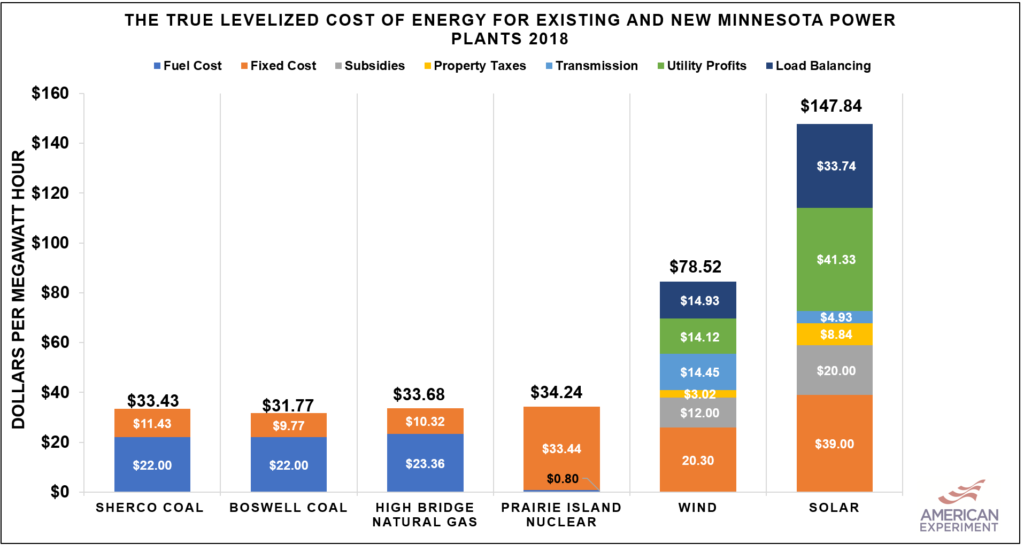Sad News: Closure Dates Announced for Boswell Power Plant
Earlier this week, Minnesota Power announced the utility would be “coal-free” by 2035 by shutting down Unit 3 of the Boswell Energy Center in 2030 and converting Unit 4 to another fuel that is not yet specified in 2035.
As we detailed in our Spring 2020 issue of Thinking Minnesota, Boswell is the backbone of the Iron Range economy. It provides the electricity needed for Minnesota’s iron mines and paper mills to run smoothly. It would presumably be the source of electricity for the PolyMet mine should it ever emerge from legal purgatory.

In my opinion, the national security implications of losing these industries make Boswell one of the most important, if not the most important, coal plants in America.
Boswell is also one of the lowest-cost sources of electricity in the entire state. It delivered reliable, affordable power for under $32 per megawatt-hour (MWh), according to 2018 data from the Federal Energy Regulatory Commission. With reasonable upgrades and improvements, the engineering life could extend beyond the 2030 and 2035 timelines established by Minnesota Power.

Unfortunately, the plant is located in Minnesota, where the Public Utilities Commission (PUC) has shown hostility toward companies that want to maintain their coal plants to keep costs low for their customers. To upgrade the plant and run it until the end of its engineering life, Minnesota Power would need to get permission from the PUC to increase electricity prices to recover those upgrade costs.
There is no way the current commission would approve of this scenario. The current commission would rather strongarm Minnesota Power into building wind and solar than allow these less-expensive repairs to occur, even if it means Minnesota families and businesses will have higher electricity bills. It’s just the world we live in.
There are many other reasons for the plant closure, and most of them have to do with government policies, not economics. Government mandates for wind and solar, along with federal subsidies, have depressed wholesale power prices (but not retail prices) and made it more difficult for coal and nuclear power plants, which have difficulty ramping their power production up and down, to stay afloat.
Every power plant is bound to close down someday, but it is sad to see politics get in the way of allowing a reliable, affordable power generator from living a full life.
Ironically, a wind turbine built today will be scrap metal by 2041, and the people who are the loudest advocates of shutting down Boswell get eerily quiet when asked about slave labor and coal-fired electricity used to produce solar panels in China. Every energy source has environmental and ethical tradeoffs, but those who push for renewable energy love pretending otherwise.
None of this will change if we continue with business-as-usual in St. Paul. However, changing the PUC from an appointed body to an elected body could help remind Commissioners that their primary responsibility is to the people of Minnesota and not the Governor’s environmental agenda.
Furthermore, having one Commissioner from each Minnesota congressional district would ensure that Minnesotans from every corner of the state have a voice on the Commission.